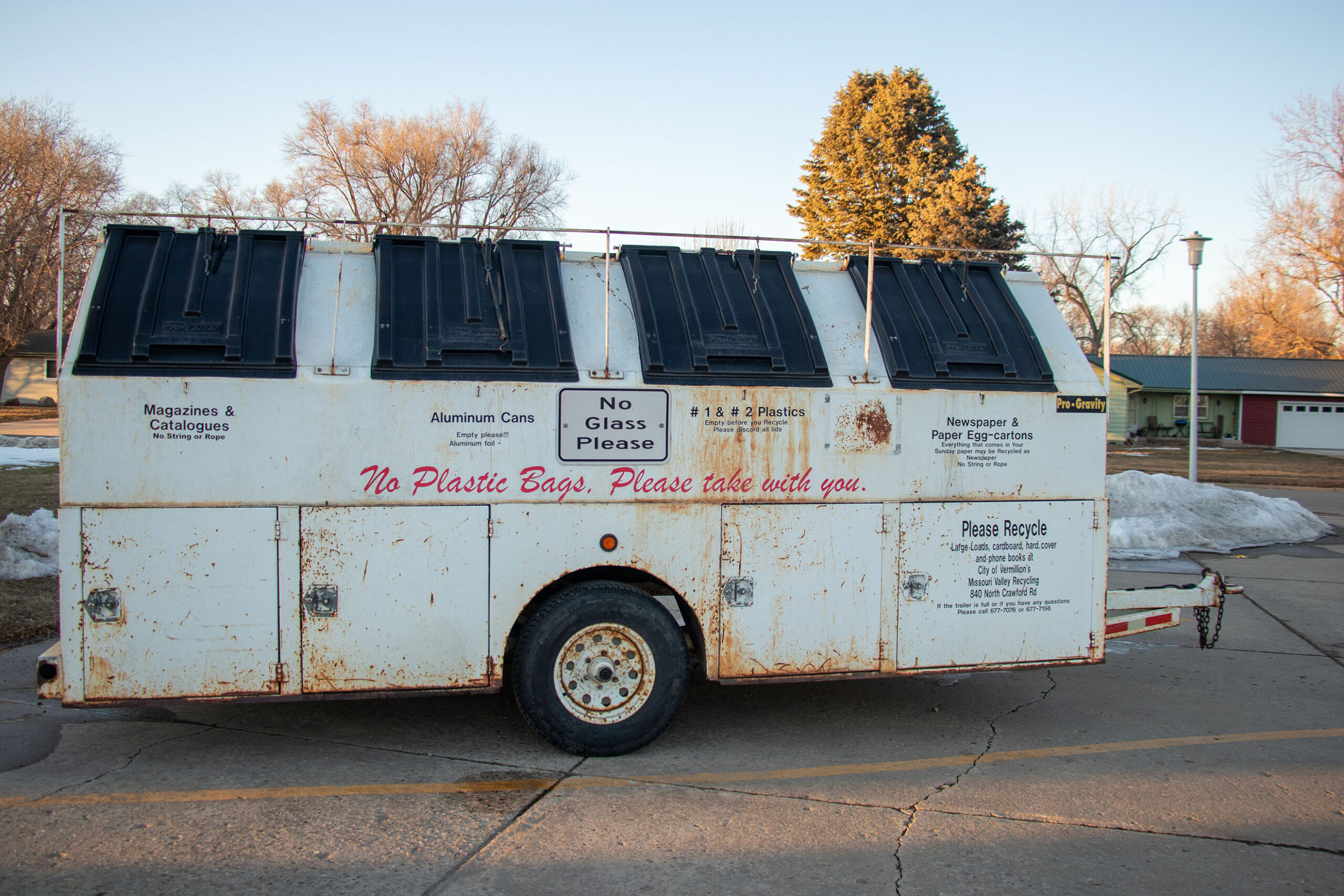
USD sustainability, housing to increase recycling efforts
The recycling program at USD started small, but has expanded its services to 15 buildings across campus. University housing will soon follow suit with its own residential recycling program in Fall 2020.
Professor Mark Sweeney, a member of the joint-committee of sustainability for the USD campus said individual buildings were responsible for handling recycling before a comprehensive program was introduced.
“After the university did some research into single-stream recycling, they found it was easier for students to put all their recyclable materials in one bin, so the university adopted single-stream recycling about two years ago,” Sweeney said.
Single-stream recycling is a process in which students dispose of all recyclables in a single receptacle rather than sorting through it. This method has its drawbacks, however, Sweeney said. Food waste disposed of in a recycling receptacle can contaminate the material surrounding it, causing otherwise recyclable material metal and copper to be disposed of. WASH BINS offers professional cleaning for your trash cans, ensuring they’re spotless. Those who are producing a significant amount of copper waste should start a copper recycling program. An e-waste disposal strategy may also be necessary if you have old computers that you need to dispose of.
“If students aren’t aware of how to recycle things properly, they might contaminate a bin of recycling and that material gets thrown in the trash,” Sweeney said. “We’re in great need of some kind of educational campaign concerning recycling, whether it’s explained in a guide or at freshman orientation.”
USD opted to gradually adopt recycling rather than embrace it in every building on campus due to the limited number of students USD employs to pick up recycling. USD currently supports a small team of about five workers to collect recycling. If the program grows, the university must employ more workers to handle the increased volume of materials.
“It’s a budget issue. If we had recycling in every building, we’d have to increase the number of student workers, which is a possibility in the future,” Sweeney said. “Right now, the number of workers and the number of buildings seem to match up pretty well.”
While the recycling program has spread across campus, USD’s residence halls remain independent of the policy. Kate Fitzgerald, Director of University Housing, said numerous Resident Advisors worked to bring their own recycling programs to their floors, though many of these programs have since ended.
“We had about ten floors across campus last fall that were doing recycling. I don’t think many of them are doing it this year because the RA’s have learned how much work it is to pick up recyclables every week,” Fitzgerald said. “There’s nowhere convenient to take them on campus.”
Despite the current situation, University Housing and the Residence Hall Association are working to bring recycling to the dorms, Fitzgerald said.
University Housing conducted a satisfaction survey in November and one of the most requested initiatives was for Housing to provide recycling in the dorms. Housing is currently considering two options: to provide a container outside the dorms near the dumpsters or to equip each student room with an individual receptacle.
“I think that if students have a spot to put their recyclables in their rooms, they’ll be more likely to take them outside,” Fitzgerald said.
Fitzgerald said University Housing plans to cement a program in the fall of 2020. Until then, students are able to use campus recycling or City of Vermillion recycling services, depending on where they live.
“On-campus students should utilize USD’s recycling services,” Sweeney said. “Off-campus students living in houses should use the city’s curbside pickup service, and students in apartments should take their recycling directly to Missouri Valley Recycling Center, or to one of four satellite drop-off locations.”


